5 Students Share Why They’re Excited for August’s Interfaith Leadership Summit
July 13, 2022
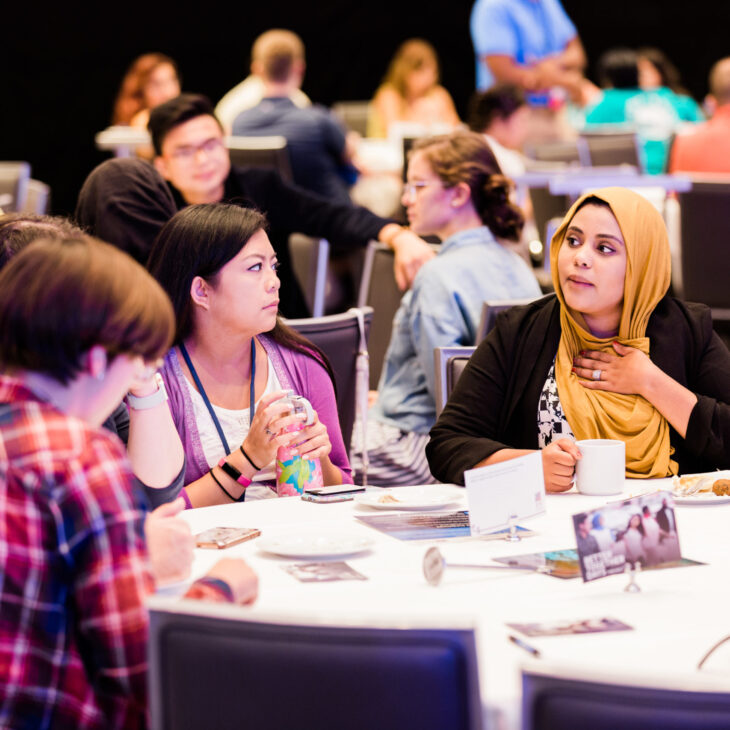
Students from across the country are coming to Chicago to attend Interfaith America’s Interfaith Leadership Summit, which will take place from Aug. 12-14. Interfaith America spoke with a few students registered and eager to join the Summit for the first-time next month to learn about their excitement and motivations.
From a Lutheran student looking to create a campus-wide action plan to recognize and respect different religious calendars, to a non-denominational Christian interested in learning about other schools’ successful interfaith projects, to a spiritually affiliated Hindu student hoping to build relationships with students equally passionate about interfaith work, the Summit will host leaders with diverse worldviews and unique interfaith interests.
The following student responses have been edited lightly for length and clarity.
Alejandro Del Valle
Hometown: Oakland, California
College/University & Graduation Year: Lehigh University, Class of 2023
Major: Global Studies; Health, Medicine, and Society
Religious Affiliation/Worldview: I am a non-denominational evangelical Christian
Why did you decide to sign up for the Interfaith Leadership Summit?
I signed up for the Interfaith America Leadership Summit after hearing about it from a staff member at Lehigh.
What do you hope to learn that you can bring back to your campus?
I want to learn how to be an interfaith leader and create an interfaith club on my campus along with other students, since there currently are not any interfaith initiatives or clubs at my university. Furthermore, I hope to learn what interfaith spaces look like from educators, but also learn what it looks like to other students participating in the Summit.
Share
Related Articles
American Civic Life
Higher Education
American Civic Life
Faith Based Efforts Work in Vaccine Uptake: Now Let’s Make it Easy
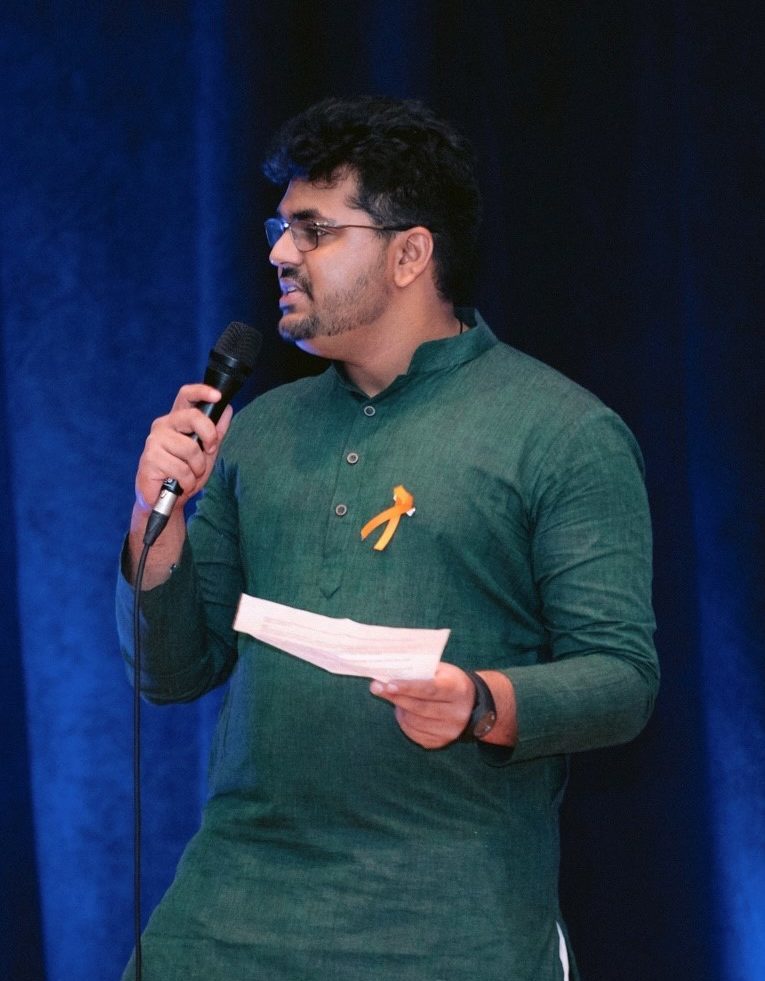
Sharique Ahmed
Hometown: Mumbai, India
College/University & Graduation Year: Ohio Wesleyan University, Class of 2024
Major: Computer Science, Microbiology
Religious Affiliation/Worldview: I identify as a Sunni Muslim
Why did you decide to sign up for the Interfaith Leadership Summit?
I was nominated for a fellowship by my university chaplain who informed me about this opportunity.
What are you looking forward to about the Summit?
I have always believed most of the world’s problems can be resolved through dialogue. Faith plays a major role in our world and as such is often a topic of disagreement and dispute. Faith, when harnessed in its purest form, can work wonders for humanity; unfortunately, it is often misunderstood or used to further personal or ideological agendas. As a result, I want to see what interfaith dialogue looks like in America.
What does interfaith look like on your campus?
Our campus has different faith groups, an interfaith house, and a university chaplain whose office spearheads a series inviting chaplains from different faiths to attend and speak at our university. I had to opportunity to go to one such event and quite enjoyed the interactions I had with the speakers.
What do you hope to learn that you can bring back to your campus?
I want to learn how to emulate the hard fought and learned harmonious religious coexistence I saw growing up in India to a global scale. Now, even my home country is facing challenges with religious tolerances and discrimination, but I have seen first-hand how people from different faith traditions can not only live but also work and thrive together better than any one, homogenous society. I want to bring awareness to my campus about my faith system, common misconceptions about it, as well as how we are not so different from one another after all. I also want to be better able to guide the Muslim students on campus as I deliver informed Friday sermons.
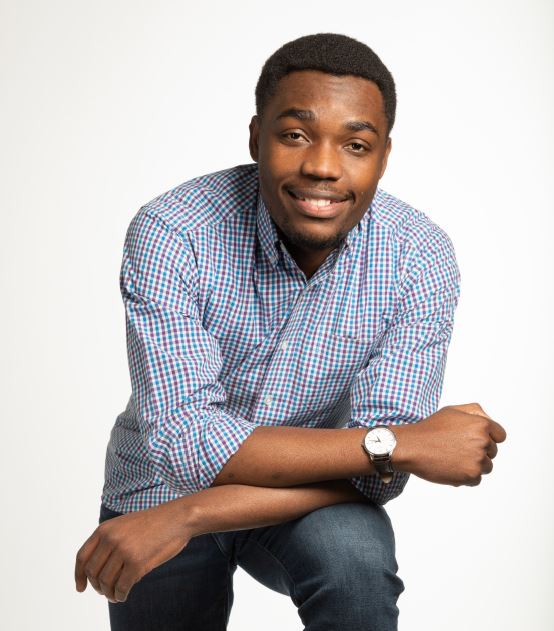
Lucky Bahati
Hometown: Purceville, Virginia
College/University & Graduation Year: Brigham Young University, Class of 2024
Major: Civil Engineering
Religious Affiliation/Worldview: I am a Christian, Bible believer, and Christ follower. I am non-denominational, although part of a Baptist congregation currently
Why did you decide to sign up for the Interfaith Leadership Summit?
I learned about this opportunity through the BYU religion department, more specifically through the Council for Interfaith Engagement, on which I serve as a student fellow. I decided to sign up for the Leadership Summit since it is an opportunity to gain knowledge that I can then bring back on campus and put to use to better serve others.
What are you looking forward to about the Summit?
I am looking forward to learning from other students and faculty that will be part of this Summit. I look at this as an opportunity to listen and take note on how others are making their campuses and places of influence more welcoming to other faiths. Through shared experience, I hope one can gain other skills on how to engage other faiths not only on campuses but in every sphere of life.
What does interfaith look like on your campus?
BYU mainly attracts students affiliated with the Church of Jesus Christ of Latter-day Saints, so only a small minority of students come from other faiths. However, the BYU religion department offers a platform for other faiths to feel welcome on campus. Our interfaith program includes student Summits, at times inviting students of other faiths from other universities to come and have a religious conversation on different beliefs. We also have a student chapter BYU Interfaith Student Association that helps in creating and fostering an environment where other faiths can feel comfortable.
What do you hope to learn that you can bring back to your campus?
I hope to learn what other people are doing and what has been working as far as interfaith endeavors are concerned. To me, it is an opportunity to not repeat mistakes and instead emulate their successes. I also hope to know more about other opportunities in the areas of interfaith and how I can continue to be a steward for such a cause.
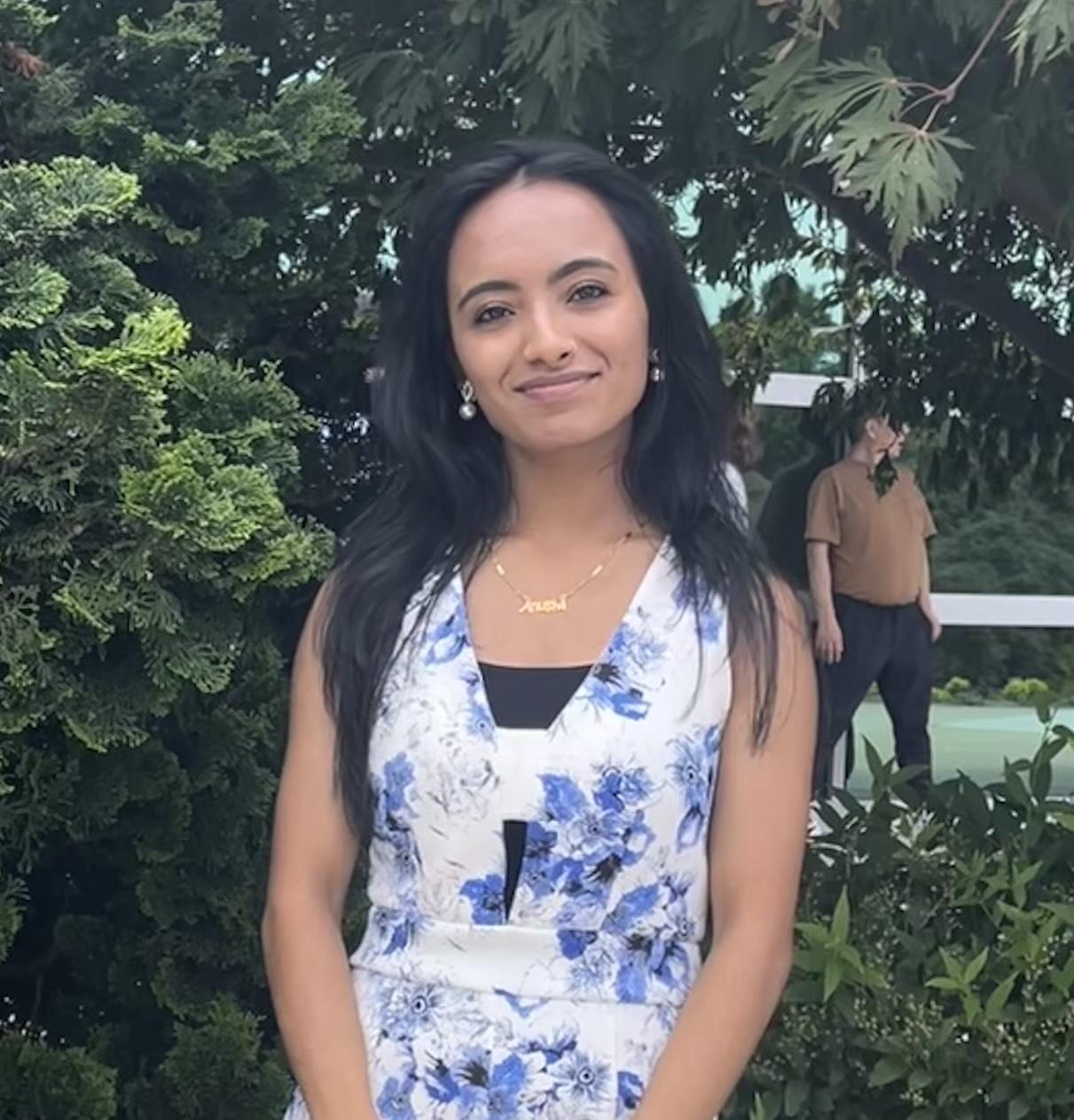
Anusha Karki
Hometown: Elmont, New York
College/University & Graduation Year: Hamilton College, Class of 2024
Major: Sociology
Religious Affiliation/Worldview: I was raised Hindu but am more spiritual than religious.
Why did you decide to sign up for the Interfaith Leadership Summit?
At Hamilton, I am a part of a fellowship called the Social Justice Initiative where leaders from religious clubs come together to have interreligious dialogues, discuss what spirituality and religion mean to each other, and how students can bring those ideas into their involvements on campus. These conversations helped me navigate my religious and spiritual leanings as well as how to promote unity among different religious groups and students across campus. Towards the end of the program, my mentor suggested I attend the Interfaith America Leadership Summit and bring the skills I learn at the Summit back to Hamilton. I knew I wanted to meet people with a similar passion for interfaith leadership, so the Summit seemed like the perfect opportunity.
What are you looking forward to about the Summit?
I am looking forward to meeting college students from all over the country who share similar interests. I am eager to discuss and listen to new perspectives and explore how I can bring that learning and development into my own campus.
What does interfaith look like on your campus?
With the help of the Spiritual Inquiry non-credit class at Hamilton, I was introduced to lots of interreligious beliefs on campus. I’ve come to realize that no matter the religious practice, there is a deep core belief in community and spiritual wellbeing that spans all religious traditions; that the shared goal across all religions is to create unity and spread goodness.
What do you hope to learn at the Summit that you can bring back to your campus?
I would like to learn more about America’s religious diversity and to connect the work Interfaith America has done with my educational institution. I want to learn how to use faith as a bridge for students with different religious beliefs and to build a partnership between Interfaith America and Hamilton. I really believe this partnership could create something great.

Kristina Fiedler
Hometown: Chicago, Illinois
College/University & Graduation Year: University of Wisconsin, Madison, Class of 2023
Major: Environmental Science, German
Religious Affiliation/Worldview: I grew up in an interfaith upbringing, so I identify with parts of both Lutheranism and Brazilian spirituality.
Why did you decide to sign up for the Interfaith Leadership Summit?
At the University of Wisconsin, Madison, there is a Center for Religion and Global Citizenry that conducts a fellowship program of students in different years, majors, and faiths. The fellows meet weekly to discuss the core of our religions, as well as learn about each other’s faith traditions. After I completed one year as a fellow and was invited to become a senior fellow the following year, the professor in charge of the program suggested I attend the Interfaith America Summit to gain skills and leadership experience that could be incorporated into the program.
What are you looking forward to about the Summit?
I am most looking forward to meeting people my age that are willing to talk about interfaith and gain new perspectives. Towards the end of the fellowship, the fellows had bonded and knew one another quite well; therefore, I am hoping that at the Summit, I can build the start of similar relationships and maintain those connections afterwards so that we can connect over our shared interest in the interfaith work that is a unique part of our identities.
What does interfaith look like on your campus?
While interfaith is highly valued at the Center, there have been religious issues on campus that need improvement. For example, the start of an academic year began on Rosh Hashanah and another year finals fell during Ramadan. A lot of interfaith work seems to be dependent on individual departments, so creating an interfaith action plan would help provide students the confidence that their religious beliefs and holy days would be respected by the institution.
What do you hope to learn that you can bring back to your campus?
I would like to create an action plan on how to have conversations with professors and departments about implementing interfaith dialogues and consciousness into the school year. I think creating a model for interfaith work across campus is incredibly important, and I hope to integrate the knowledge I gain at the Summit towards this action plan.
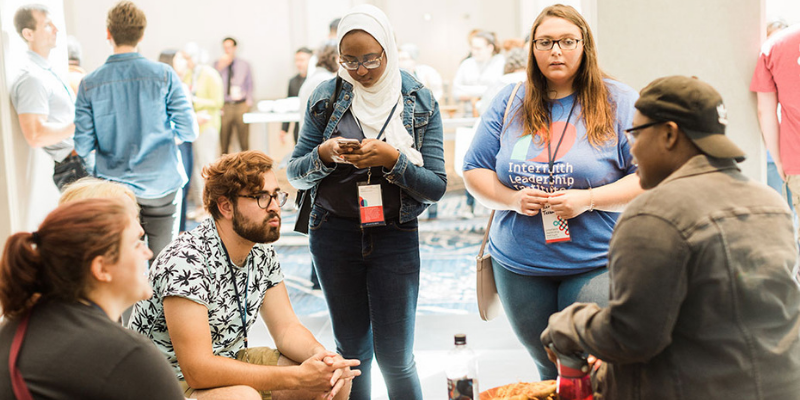
INTERFAITH LEADERSHIP SUMMIT
Register for Virtual Attendance
Come to the Summit with the passion to bring people together and leave equipped with the knowledge and skills to make it happen.
Register


